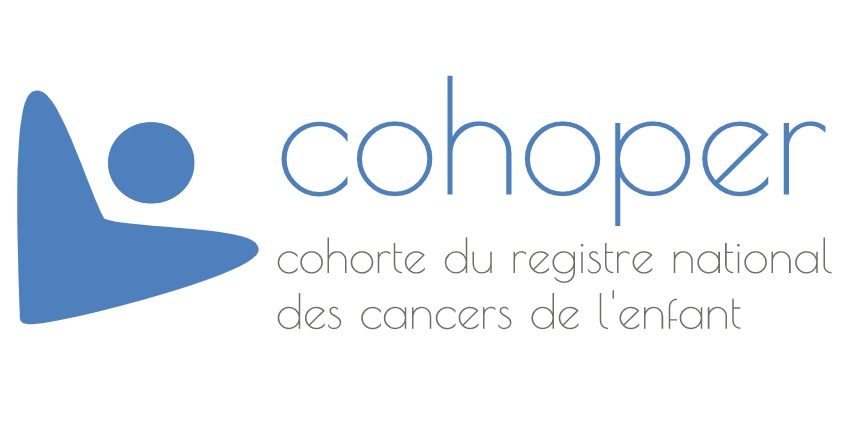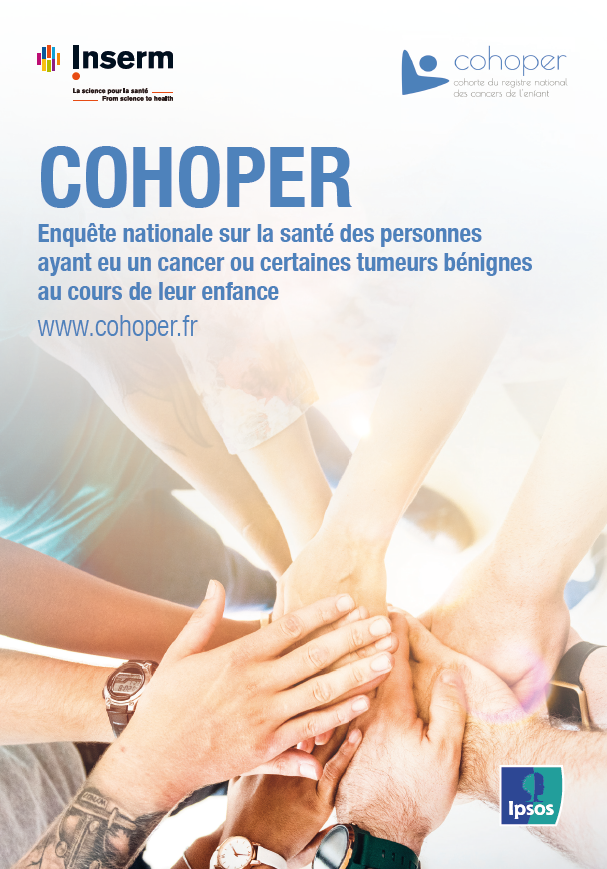
Objectives
The COHOPER cohort allows systematic epidemiological surveillance of the people who had a cancer in childhood.
It is based on records of the certified National Childhood Cancer Registry (RNCE). It was set up in 2011 following recommendations by the French National cancer Institute (INCa) in the framework of the 2nd French Cancer Plan, in collaboration with the SFCE. It is designed to be exhaustive and permanent.
The main objective of the COHOPER cohort is to evaluate long term risk of relapse, second cancer, sequelae and, more generally, state of health of former patients away from their diagnosis and to improve the management of childhood cancer.
Information collected
The information regarding the patients’ progression over the 5 years following their diagnosis is collected in the pediatric hemato-oncology records (CNIL Authorization No. 998198 – decision DR-2013-198). Data on radiotherapy doses are also transmitted to the RNCE since 2013 by the centralized PediaRT radiotherapy database at the Léon Bérard Centre (CNIL Authorization No. 914567 – decision DR-2014-613).
The online survey COHOPER, launched at the end of 2021, aims to better understand the consequences of cancer or certain benign tumors of childhood and their treatments on the health, quality of life, lifestyle habits, and family and professional situation of individuals who have become adults.
The results of COHOPER will contribute to improving the management of childhood cancers and benign tumors, as well as to exploring avenues for preventing the sequelae and side effects of treatments.
All adults who have been registered in the National Register of Childhood Cancers (RNCE) since the year 2000 have been invited to participate, totaling approximately 14,000 individuals. 47% of them, roughly 6600 adult participants of the cohort, have agreed to fill out this questionnaire.
A collaboration with the cohort Constances A collaboration with the cohort is in place to compare the survey results with data from the general population. Overall, 25,000 participants from the Constances cohort, aged under 30 and without a history of childhood cancer, will constitute the reference group. Several sets of questions are indeed common to both cohorts.
A systematic follow-up is conducted by querying the health insurance databases and hospitals. SNDS.
All information has been collected and recorded under conditions respecting the confidentiality of medical data and the anonymity of patients. They will assist researchers from various disciplines in better understanding the long-term effects of treatments and in improving the management of childhood cancers.

